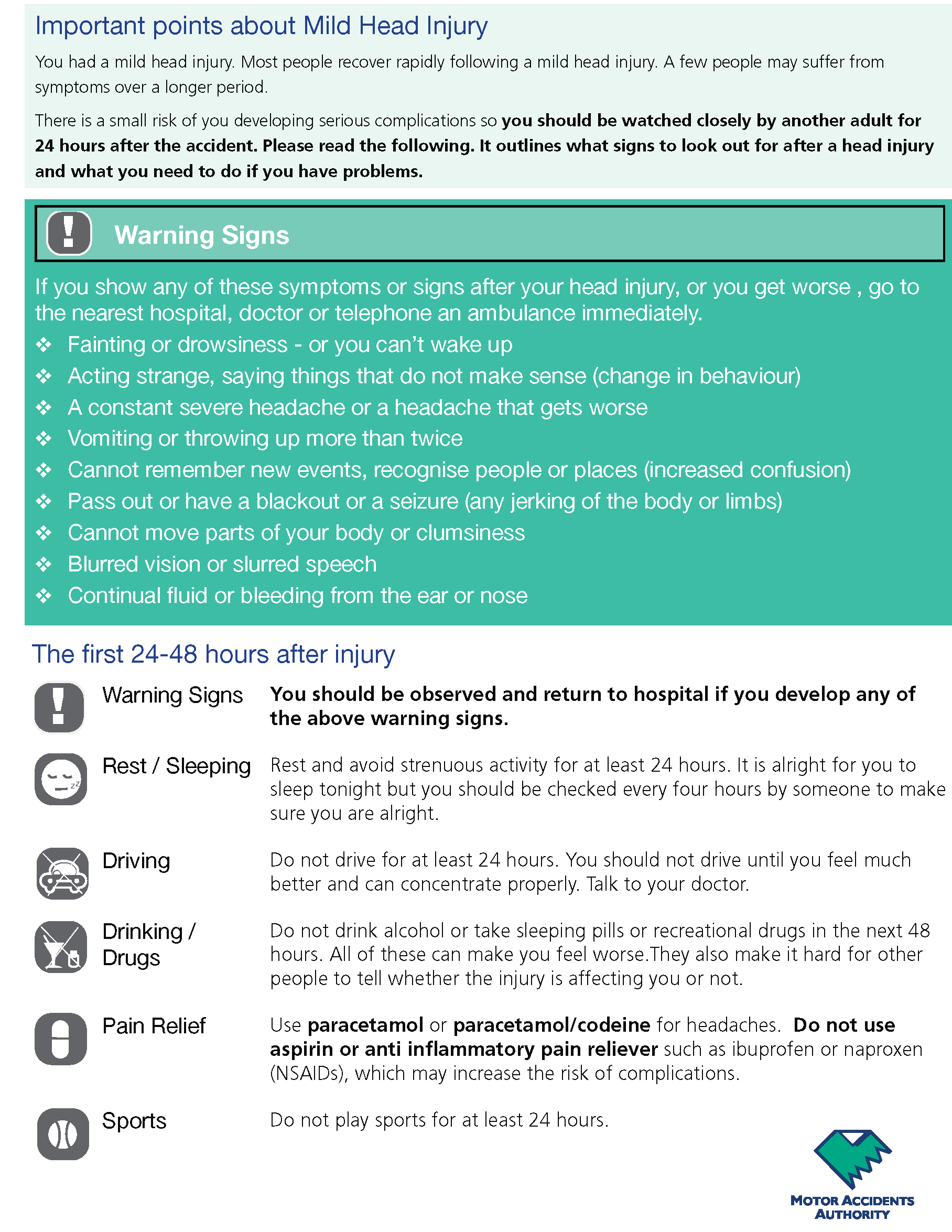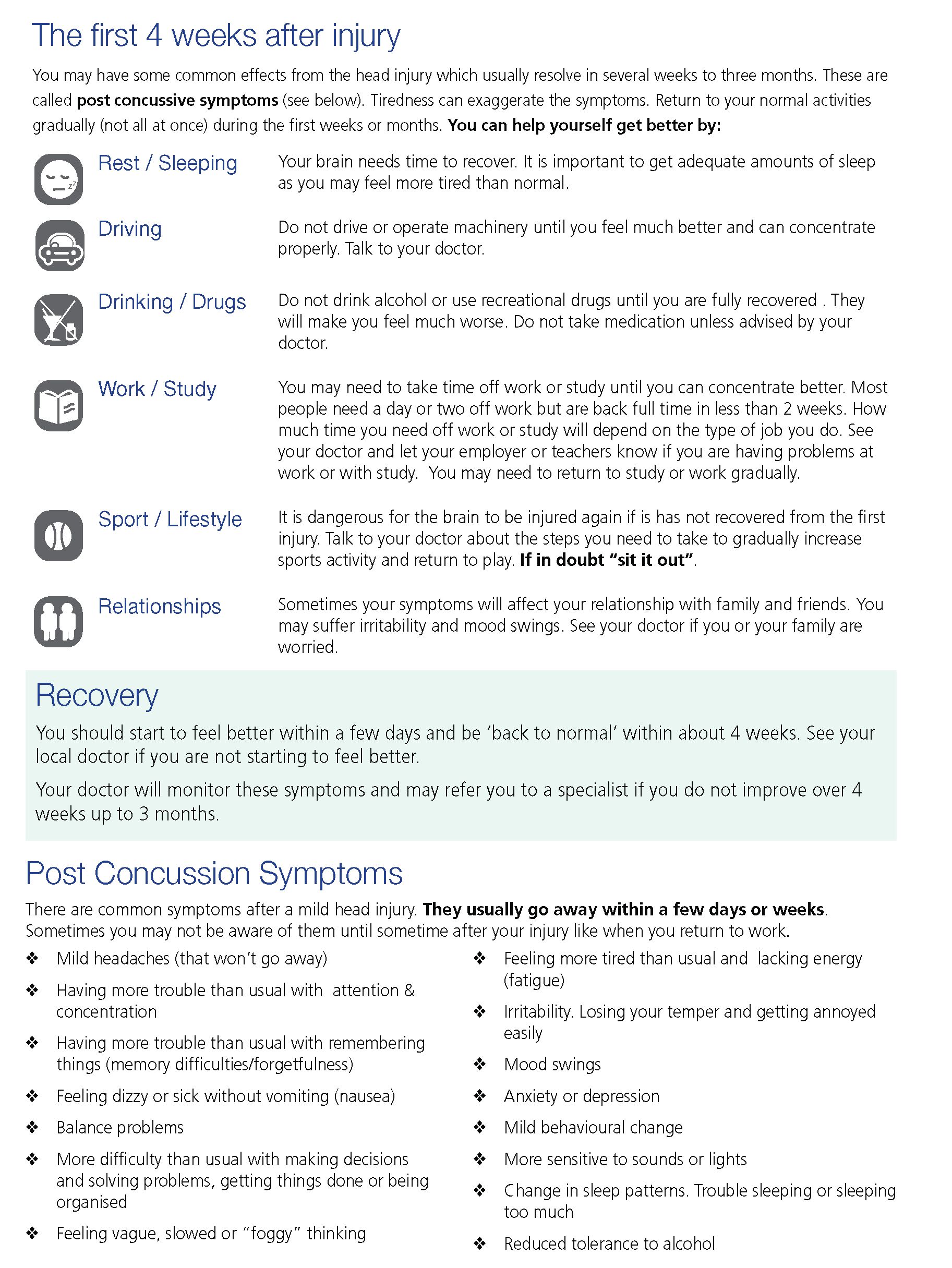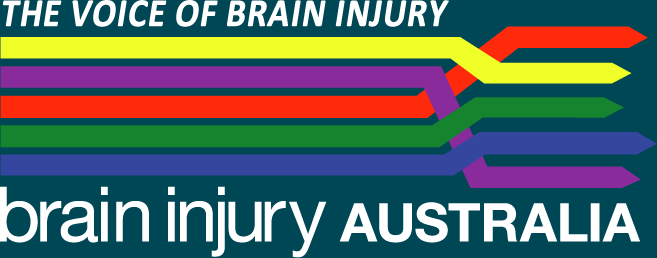Role of the GP
Role of the GP
GPs can play a key role in:
- Initial assessment and referral
- Monitoring after discharge from hospital
- Symptomatic treatment
- Subsequent referral to specialists
Things to know
Mild TBI is difficult to diagnose.
One can have a mild TBI and a normal brain CT scan.
When to see the GP
If you were treated in a hospital emergency department you should have received Hospital Discharge Advice. This advice includes information about when to follow up with your GP.
See Hospital Discharge Advice TAB
Mild brain injury Hospital Discharge Advice


What people say: Role of the GP
“I did go to the GP the very next day and told them exactly what had happened and they just told me to come back in a week if nothing had changed. You’ve gone to the place where you think you should be able to get help and that’s what they tell you. That was a reoccurring thing for me for quite a few months.”
“The GP didn’t tell me what to do and what not to do. I look back and that was really bad, and he had no idea.”
“Doctors, they’re in a tough spot. Trying to treat something when they don’t know what it is.”
“[My GP] really didn't know enough and I think he just referred me to someone else because he didn't know what to do with the situation, to be honest… they just don't know what to do with [us].”
“My GP was great and it was the combination of him and my physio… the physio said once he’d seen me and everything, he wrote to the GP and said, ‘Look, her head’s not right,’ and the GP started ‘skilling himself up’, as he put it to me. He said he knew nothing about it but he found out.”
“We got a time [to see the GP] immediately… she just ordered another barrage of tests. And then we worked out with her where we could go. Fortunately, she was aware of the brain trauma rehab group [locally]. We got in there.”
Eighteen experiences
The rich data provided by participants highlighted the critical role played by their general practitioners (GPs) over the course of their recovery.
Their GP was the initial point of contact after injury for participants, while others saw their GP after discharge from hospital. For all, their interactions with their GP significantly shaped the course of their journey after injury and their interaction with other brain injury and rehabilitation services.
Many (12/18) reported their GP was a crucial point of access and referral - they identified and linked them with other services that supported their recovery (such as brain injury rehabilitation services, neurological physiotherapists or psychologists).
However, participants’ experiences highlighted that GPs had diverse levels of knowledge about concussion and brain injury which were evident in the way that they engaged with their clients. Several participants (11/18) reported that their GPs appeared to have limited knowledge of concussion or brain injury. This resulted in confusing and sometimes inconsistent advice about what activities (such as driving, working, sports) they should (or should not) engage in, and how long their recovery would take. Generally, in these cases, participants described that their GPs had also advised them “to rest”, often with little explanation of what “rest” meant in practice and how long their period of rest should continue.
